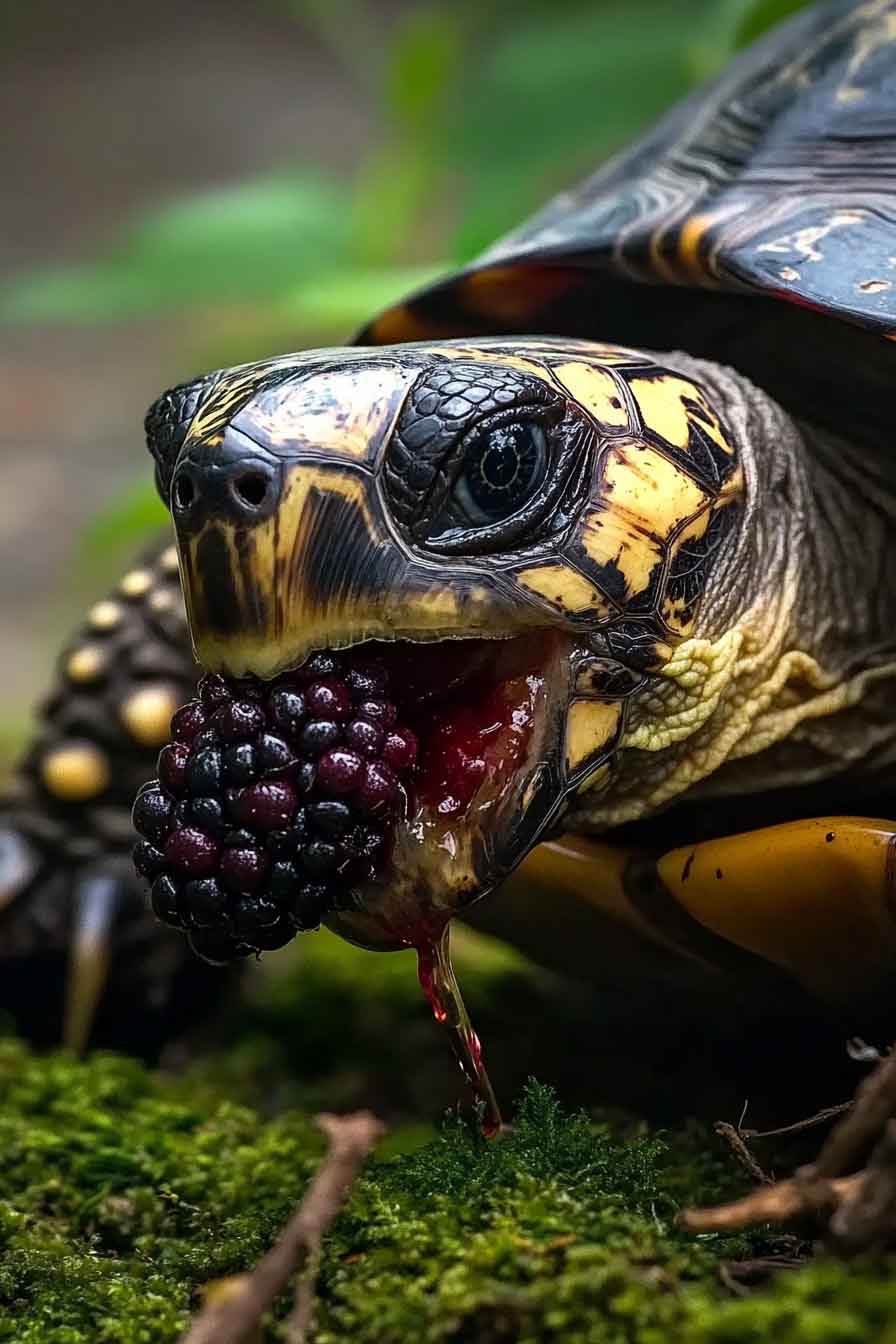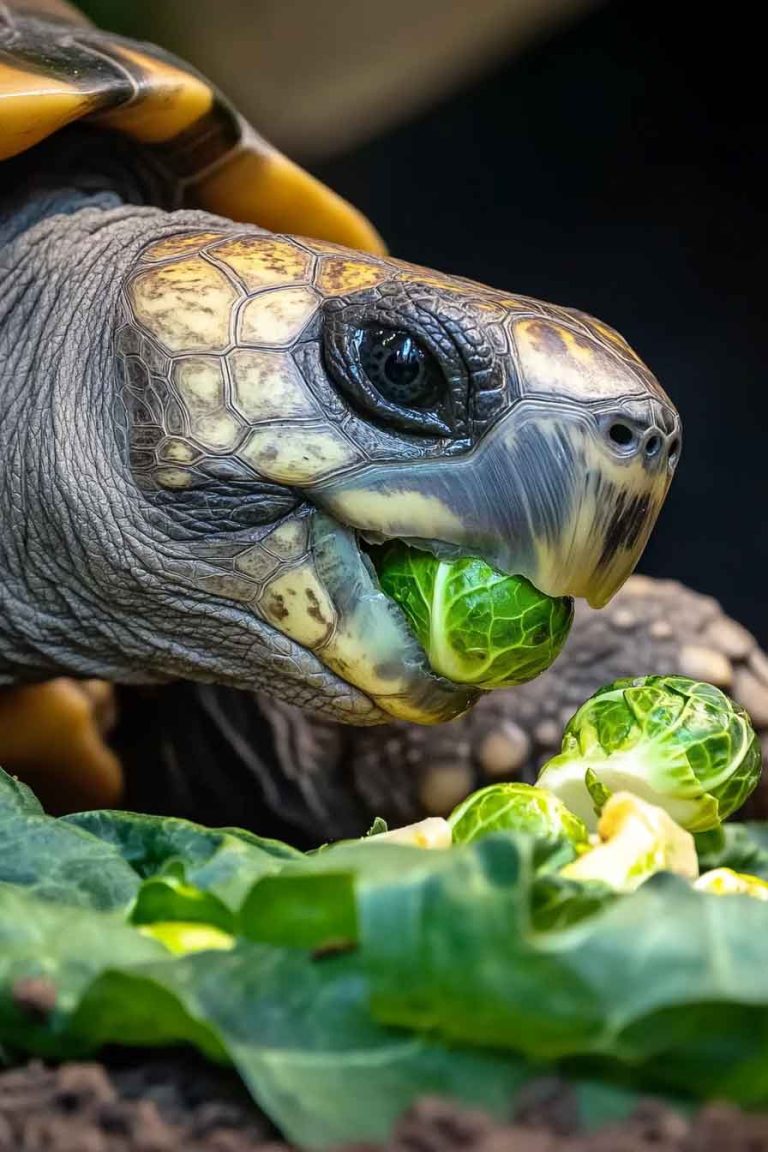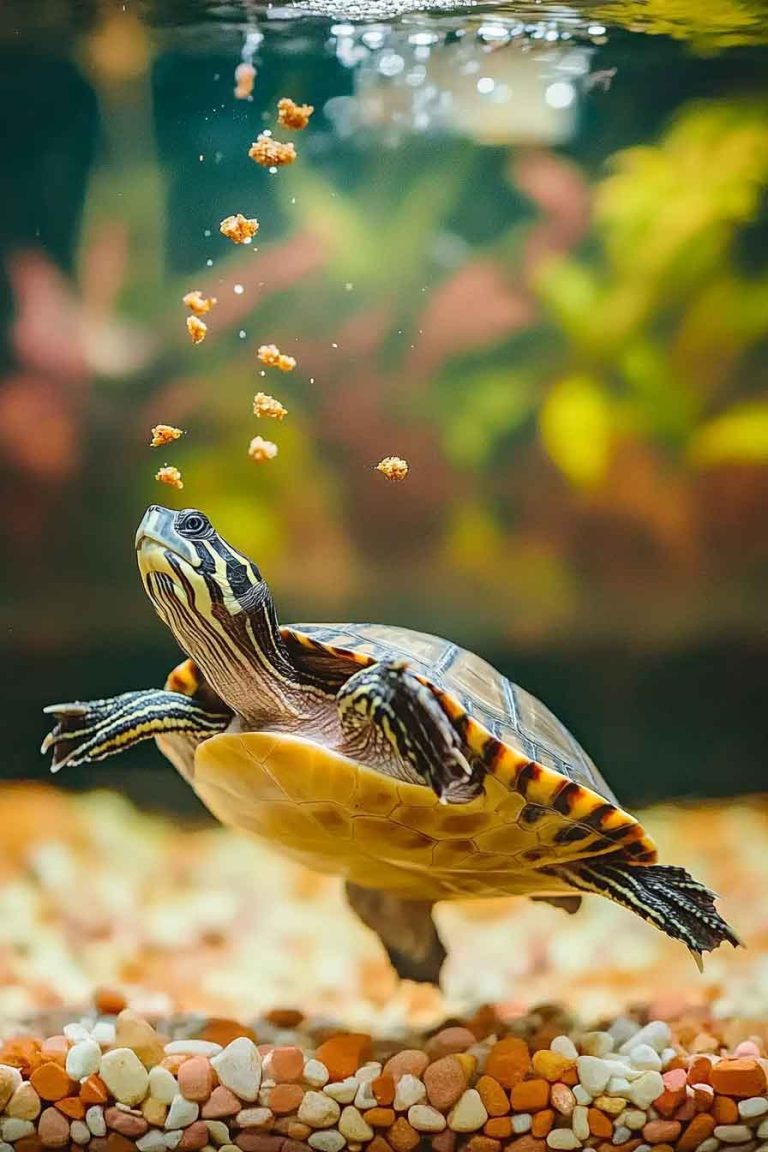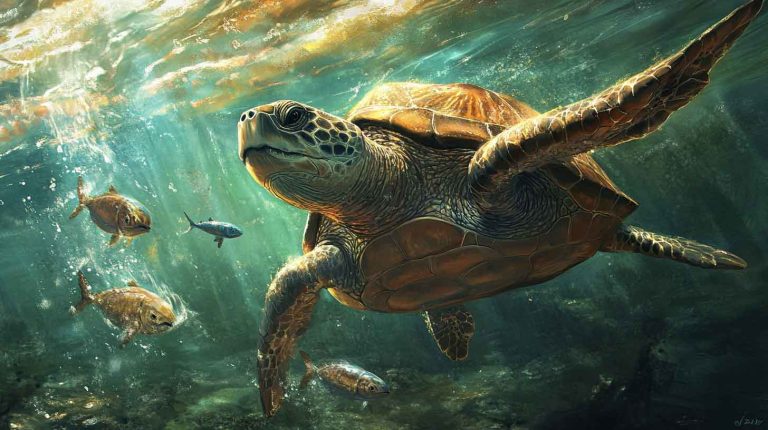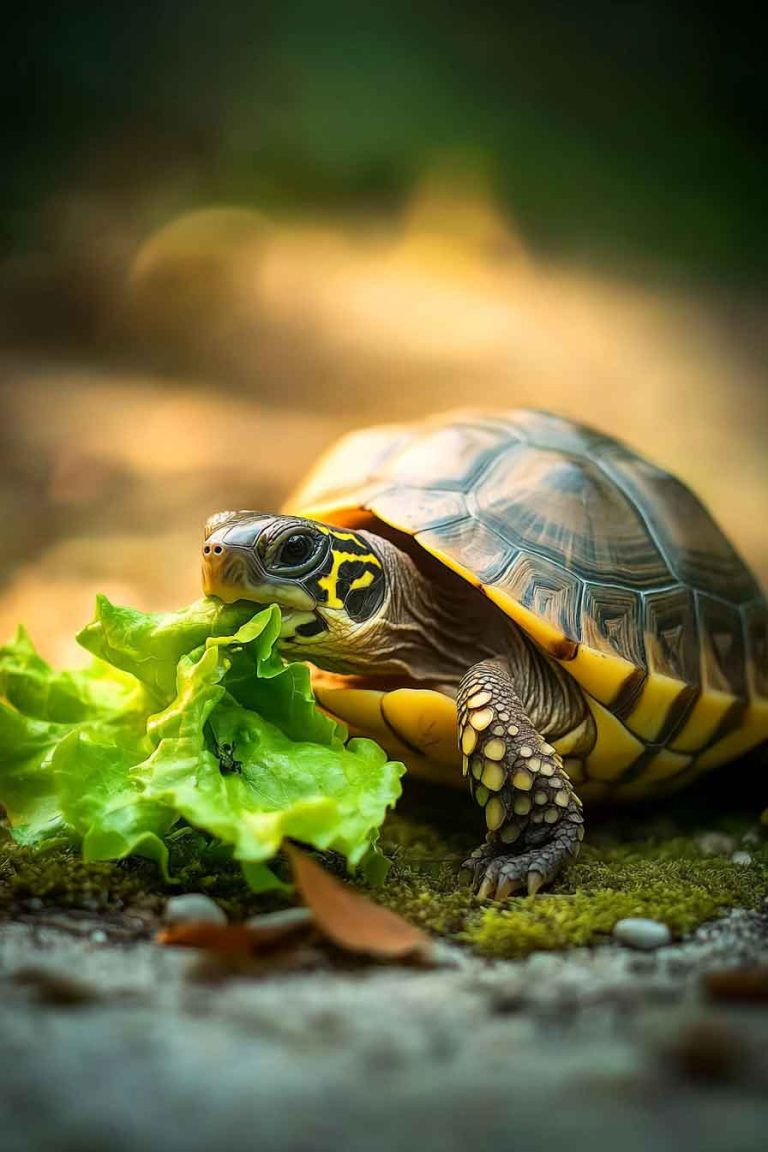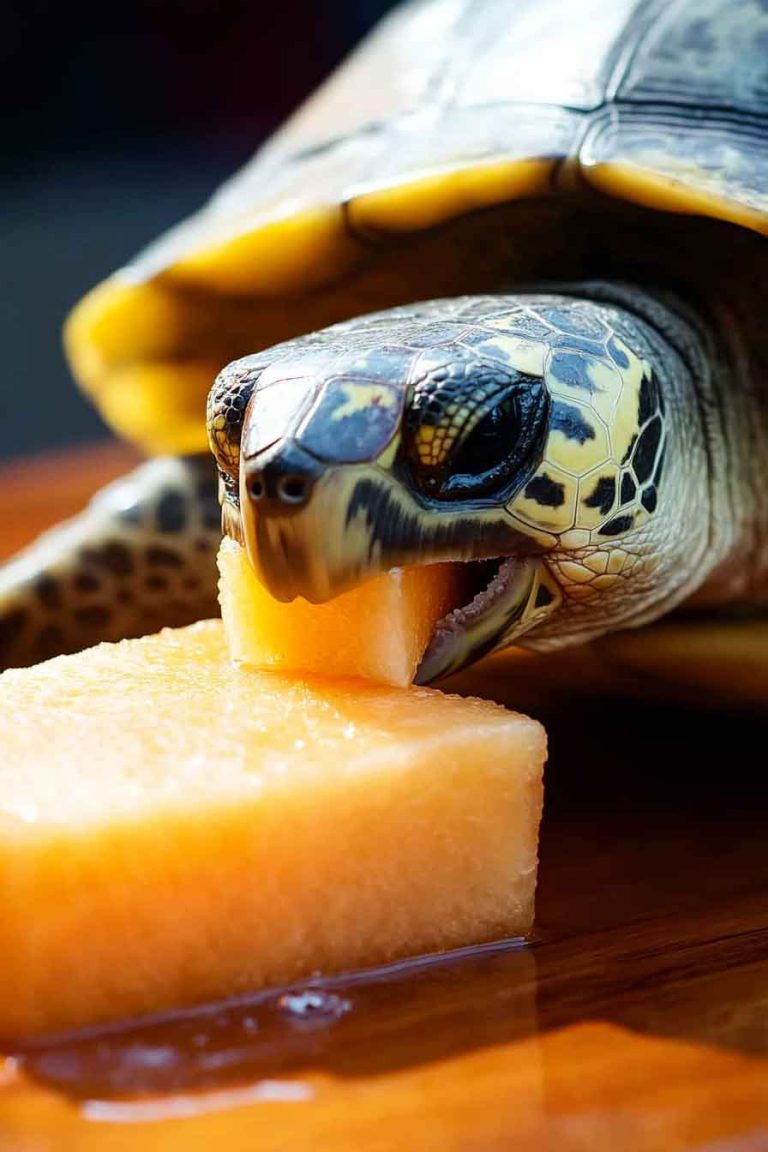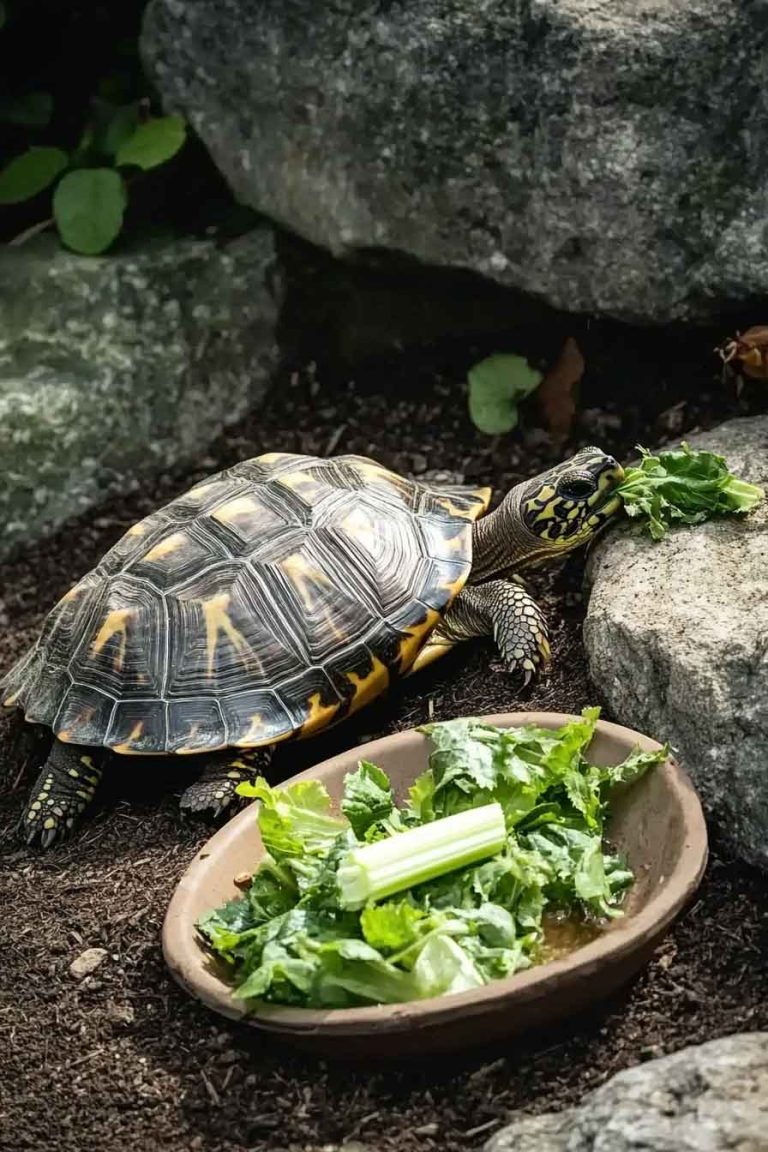Can Turtles Eat Blackberries? Side Effects & Feeding Guide
If you have a pet turtle, I bet you’ve wanted to share your food with your little friend. I know I have! It’s only natural, just like how dog and cat owners share their food with their pets. However, sharing some food items with your turtle, such as blackberries, might make you wonder if it’s…
If you have a pet turtle, I bet you’ve wanted to share your food with your little friend. I know I have! It’s only natural, just like how dog and cat owners share their food with their pets. However, sharing some food items with your turtle, such as blackberries, might make you wonder if it’s safe.
So, can turtles eat blackberries? The answer is yes – turtles can eat blackberries! Blackberries are safe for turtles when given in small amounts. They have good vitamins and are not toxic. But you should only give blackberries as a treat, not as their main food. Too many blackberries can cause tummy problems for your turtle.
In this article, I’m going to talk about why blackberries can be good for turtles and what you should watch out for. I’ll also tell you how much is safe to give them. Keep reading if you’d like to learn more about feeding blackberries to your turtle friend.
Can You Feed Blackberries To Your Pet Turtle?
The short answer is – yes, but only sometimes! Since blackberries are fruits, many people think they’re always good for turtles. While blackberries are not bad like some other foods, you still need to be careful about how much you give.
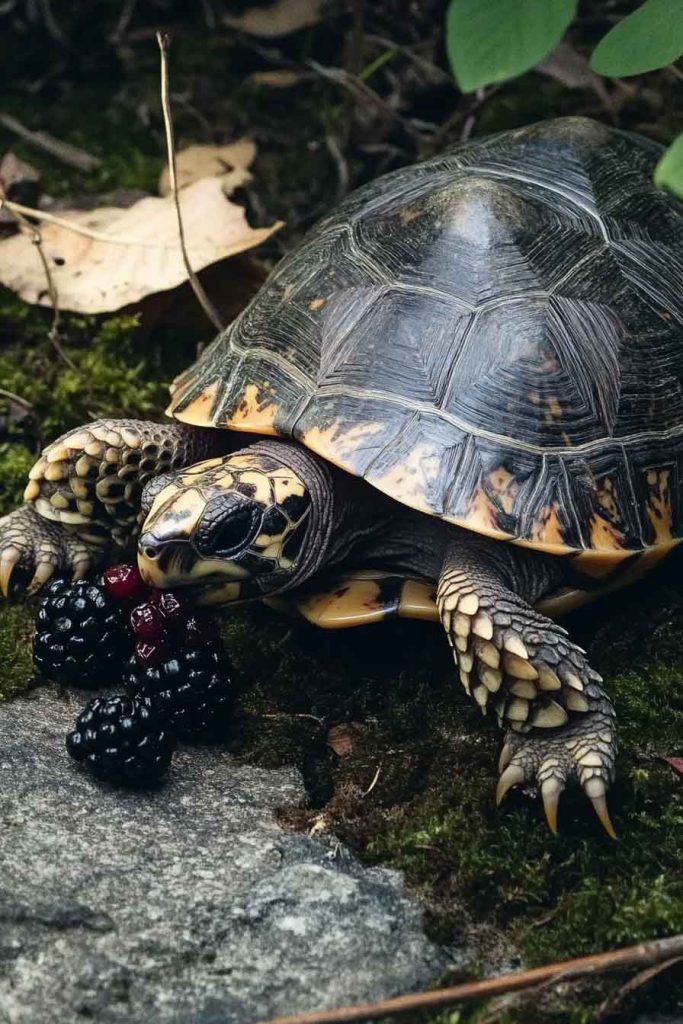
Turtles have a special tummy that works best with certain foods. They need mostly vegetables and some fruits. Let me show you what’s inside 100 grams of blackberries so you can understand better.
What’s in 100 grams of blackberries:
- Carbohydrates: 9.61 g
- Sugar: 4.88 g
- Protein: 1.39 g
- Calcium: 29 mg
- Phosphorus: 22 mg
- Vitamin C: 21 mg
- Vitamin K: 19.8 mcg
- Fiber: 5.3 g
- Water: 88.15 g
- Potassium: 162 mg
- Magnesium: 20 mg
- Iron: 0.62 mg
This list shows us why blackberries can be okay for turtles, but only sometimes. Blackberries have some sugar in them. While it’s not too much, turtles don’t need a lot of sugar in their food.
The good news is that blackberries have more calcium than phosphorus. This makes a good ratio that turtles need. Turtles need more calcium than phosphorus to have strong shells and bones.
Blackberries also have lots of water, which is good for keeping your turtle hydrated. The fiber helps with digestion too. But the sugar content means you can’t give too many at once.
Do Turtles Like Blackberries?
Most turtles do like blackberries! The sweet taste makes them happy. Many turtle owners tell me their pets get excited when they see blackberries coming.
However, every turtle is different. Some might love them, and others might not care much. My turtle always comes swimming over when I have blackberries for him!
Health Benefits of Blackberries for Turtles
Blackberries can give your turtle some good things when eaten in small amounts. Let me tell you about the good parts:
Vitamin C Power
Blackberries have lots of Vitamin C. This helps keep your turtle’s body strong and healthy. It helps them fight off sickness and keeps their shell looking good.
Good Calcium
The calcium in blackberries helps make your turtle’s shell hard and strong. Strong shells protect turtles from getting hurt. This is very important for keeping your turtle healthy.
Antioxidants
Blackberries have special things called antioxidants. These help keep your turtle’s body working well and can help them live longer.
Water Content
Since blackberries are mostly water, they help keep your turtle from getting too dry. This is especially good on hot days.
Possible Side-Effects of Too Many Blackberries
Even though blackberries are mostly safe, giving too many can cause problems for your turtle. Let me tell you what to watch out for:
Tummy Troubles
If your turtle eats too many blackberries, they might get a tummy ache. The sugar and fiber can be too much for their little stomachs. You might see them acting tired or not wanting to eat other foods.
Too Much Sugar
Blackberries have natural sugar in them. While this sugar isn’t as bad as candy, too much can still cause problems. Your turtle might get an upset stomach or loose poop.
Unbalanced Diet
If your turtle eats too many blackberries, they might not want to eat their regular food. This can make them not get all the vitamins and minerals they need to stay healthy.
Stained Shell and Mouth
The dark color of blackberries can sometimes stain your turtle’s mouth or shell. This isn’t dangerous, but it might look funny! The stains usually go away after a few days.
How Many Blackberries Should Turtles Eat?
This is a very important question! The right amount depends on how big your turtle is and what kind they are.
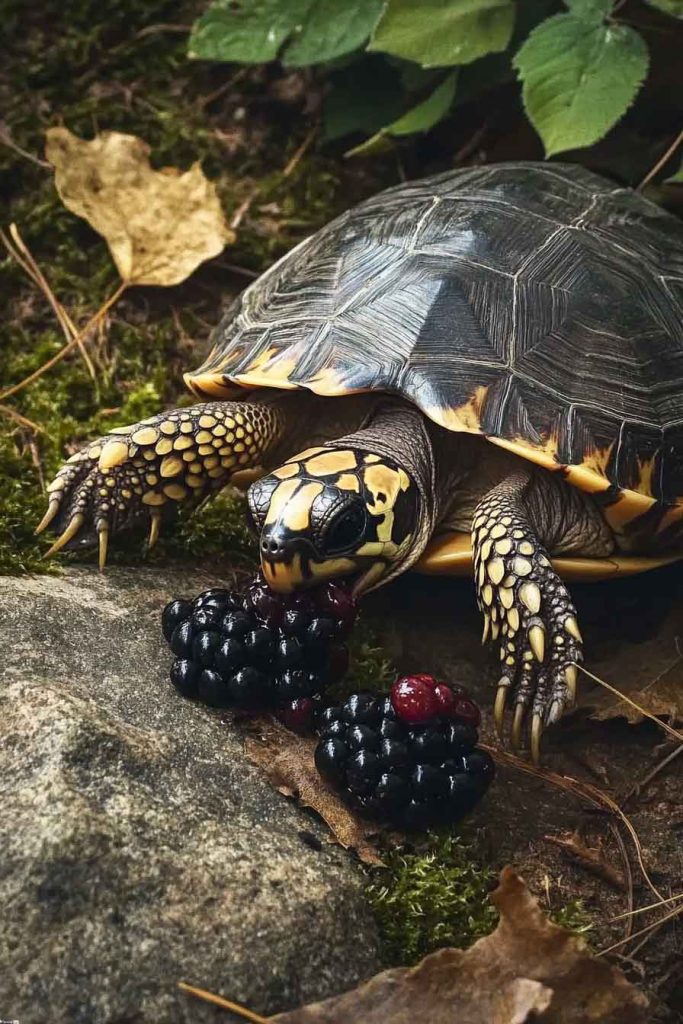
For most turtles, I recommend giving only 1-2 blackberries once or twice a week. That’s it! Think of blackberries like candy for humans – they’re a special treat, not everyday food.
Here’s what I suggest:
- Small turtles (like baby turtles): Half a blackberry once a week
- Medium turtles: 1 blackberry once or twice a week
- Large turtles: 2 blackberries once or twice a week
Always cut the blackberries into small pieces so your turtle can eat them easily. Big pieces might be hard for them to swallow.
Can You Feed Blackberries to Baby Turtles?
You can give blackberries to baby turtles, but be extra careful! Baby turtles have very small tummies and need mostly protein to grow big and strong.
For baby turtles, I suggest:
- Wait until they are at least 3 months old
- Give only tiny pieces
- Only give blackberries once a week
- Make sure they eat all their regular food first
Baby turtles need special food to help them grow. Blackberries should only be a very small treat for them.
Best Types of Blackberries for Turtles
Not all blackberries are the same! Here’s what I look for when choosing blackberries for my turtle:
Fresh Blackberries
Fresh blackberries are the best choice. They have the most vitamins and taste the best. Make sure to wash them well before giving them to your turtle.
Organic Blackberries
If you can find them, organic blackberries are even better. They don’t have chemicals on them that might hurt your turtle.
Avoid These Types
- Don’t give frozen blackberries (they’re too cold)
- Don’t give canned blackberries (they have too much sugar)
- Don’t give dried blackberries (too much sugar and too chewy)
How to Prepare Blackberries for Your Turtle
Getting blackberries ready for your turtle is easy! Here’s what I do:
- Wash them well: Use cool water to clean off any dirt or chemicals
- Cut them up: Cut big blackberries into small pieces your turtle can eat
- Remove any bad parts: Take off any mushy or moldy spots
- Serve fresh: Give them to your turtle right after you prepare them
Other Fruits Turtles Can Eat
If your turtle likes blackberries, they might also like other safe fruits! Here are some other fruits you can give as treats:
- Strawberries (cut up small)
- Blueberries
- Raspberries
- Apple pieces (no seeds)
- Melon pieces
- Grapes (cut in half)
Remember, all fruits should only be treats, not main meals!
Frequently Asked Questions (FAQs)
Can Box Turtles Eat Blackberries?
Yes! Box turtles can eat blackberries just like other turtles. Give them the same small amounts I talked about earlier. Box turtles actually eat more fruits in the wild than water turtles do.
Can Red Eared Slider Turtles Eat Blackberries?
Red eared sliders can definitely eat blackberries! They love the sweet taste. Just remember to give only 1-2 berries once or twice a week. These turtles need mostly vegetables and some protein.
Can Painted Turtles Eat Blackberries?
Painted turtles can eat blackberries too! They have the same needs as other water turtles. Give them small amounts as a special treat, not as regular food.
Can Tortoises Eat Blackberries?
Yes, tortoises can eat blackberries! Land tortoises might actually like them more than water turtles because they eat more plants and fruits in nature. Still, only give small amounts.
What If My Turtle Eats Too Many Blackberries?
If your turtle accidentally eats too many blackberries, don’t panic! Watch them for a day or two. They might have loose poop or act a little tired. Make sure they drink water and eat their regular food. If they seem very sick, call a vet.
Can I Give Blackberry Leaves to My Turtle?
It’s better to stick with just the berries. Blackberry leaves might not hurt your turtle, but they don’t have as many good vitamins as the actual berries do.
Signs Your Turtle Likes Blackberries
Here’s how you can tell if your turtle enjoys their blackberry treat:
- They swim or walk over quickly when they see you with blackberries
- They eat the berries right away
- They look around for more after finishing
- They seem happy and active after eating them
Signs to Stop Giving Blackberries
Stop giving blackberries if you notice:
- Your turtle has loose or watery poop
- They stop eating their regular food
- They seem tired or sick
- Their shell or skin looks different
- They throw up after eating them
Conclusion
Blackberries can be a wonderful treat for your turtle friend! They’re safe, tasty, and have some good vitamins. The key is to remember that they’re treats, not everyday food.
Give your turtle just 1-2 blackberries once or twice a week, and they’ll be happy and healthy. Always wash the berries first and cut them into small pieces. Watch your turtle to make sure they’re doing well after eating them.
Your turtle needs mostly vegetables, some protein, and just a little bit of fruit to stay healthy. Blackberries can be part of that little bit of fruit!
I hope this article helped you learn about turtles and blackberries. Taking care of a turtle is a big job, but it’s also lots of fun. Your turtle friend is lucky to have someone who cares enough to learn about the best foods for them!

